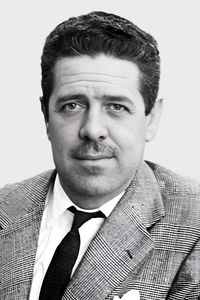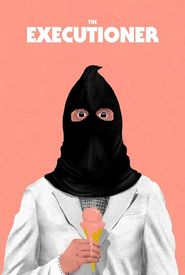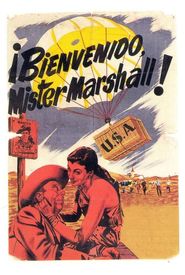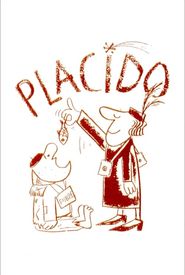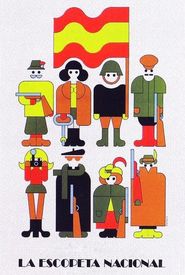Juan Luis Berlanga was born in Valencia, Spain in 1928. He began his studies in Valencia in 1928, but his family sent him and his brother Fernando to the Beau-soleil hospital school in Switzerland in 1929 due to a lung disease. In 1930, he returned to the San José School in Valencia, where he stayed until 1931, the year the Jesuits were expelled from Spain.
Berlanga saw active service in the Spanish Civil War in the riflemen's 40th Division. After the war, his father, a member of the Spanish Parliament for the 'Frente Popular' (Popular Front),was imprisoned by Franco's dictatorship. Berlanga joined the División Azul (Blue Division) in 1941 to try to improve his father's situation in jail and fought in Russia at the Novgorod front, returning to Spain in 1942.
In the 1940s, Berlanga began to take an interest in poetry and cinema, and started to write a screenplay entitled 'Cajón de perro', together with his first cinematographic reviews. He entered the 'Instituto de Investigaciones y Experiencias Cinematográficas' (IIEC) in 1947 and filmed a short entitled 'Paseo por una guerra antigua', which he finished with the help of Juan Antonio Bardem, Florentino Soria and Agustín Navarro.
Berlanga and Bardem continued to collaborate on films, including 'Esa pareja feliz' (1951) and 'Welcome Mr. Marshall!' (1953),which received an International Award and a Special Mention Award at the Cannes Festival. Berlanga's conceptual and political audacity in his films continued in the 50s, which tended not to be very well received by the censor.
Berlanga participated in the 'Conversaciones de Salamanca' (Salamanca's Discussions) in 1955, where the future of Spanish cinema was debated. He filmed 'Calabuch' (1956) and began lecturing at the IIEC in 1958. His subsequent film 'Se vende un tranvía' (1959) was his first professional liaison with Rafael Azcona.
Berlanga's subsequent films, including 'Placido' (1961),'The Executioner' (1963),'Grandeur nature' (1973),and a trilogy comprising 'La escopeta nacional' (1978),'Patrimonio nacional' (1981),and 'Nacional III' (1982),were all polemic and focused on the disorders evident in the Spanish upper middle-class upon being confronted with a new political status quo.
Berlanga was made president of the 'Filmoteca Nacional' (National Archive) in 1978 and won several awards, including the 'Premio Nacional de Cinematografía' (National Cinematography Award) in 1980, the 'Medalla de Oro a las Bellas Artes' (Gold Medal to Arts) in 1982, the 'Premio Príncipe de Asturias de las Artes' (Príncipe de Asturias Arts' Award) in 1986, and the 'Doctor Honoris Causa' title by the 'Universidad Politécnica de Valencia' (Valencia's Politechnical University) in 1997.
Berlanga was also the first president of the Academia de las Artes y Ciencias Cinematográficas de España (Spanish Academy of Arts and Cinematographic Sciences) and won several awards, including three Goya Awards for 'Todos a la cárcel' (1993) and an honorary award from the 'Asociación de Directores de Cine' (Cinema Directors' Association) in 2002.
